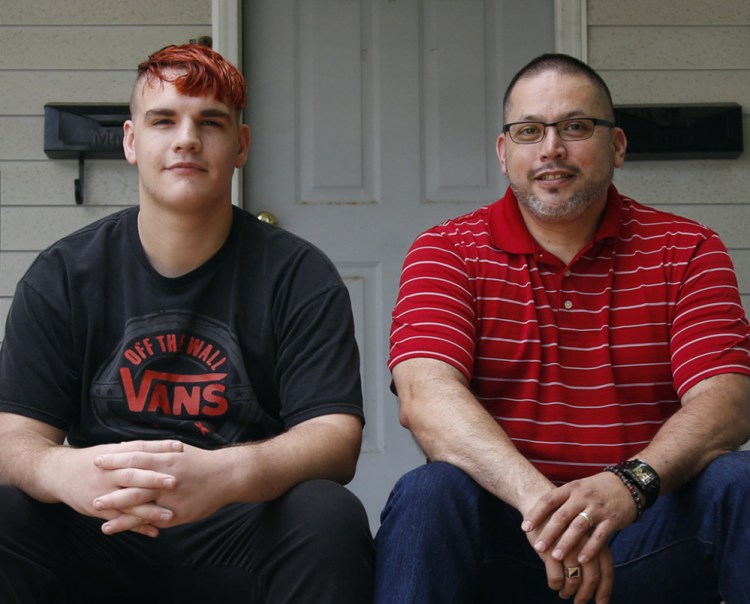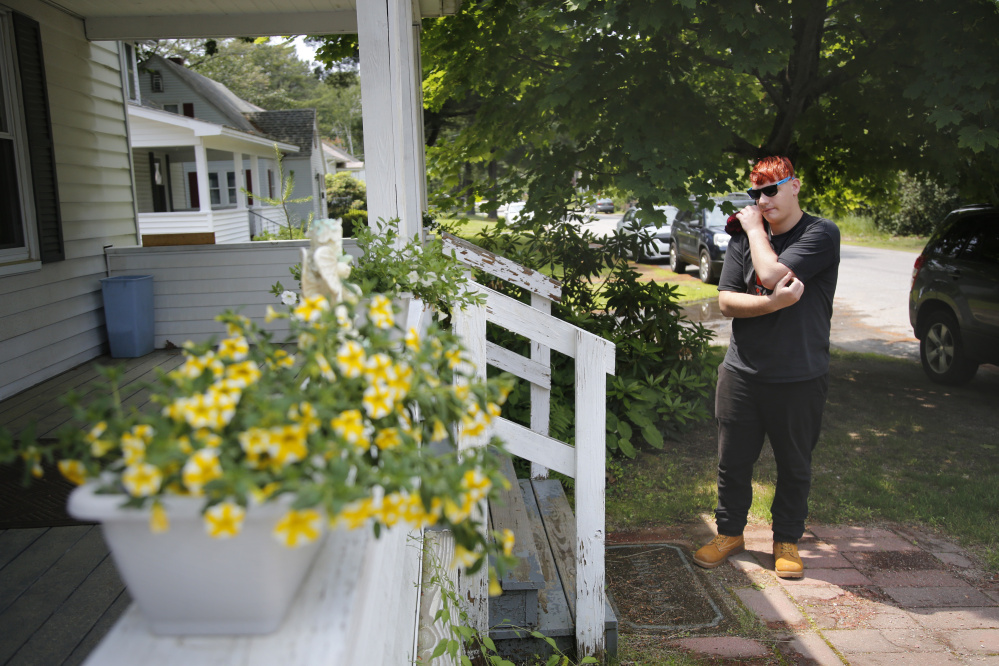Luis Segovia’s son – who has intellectual disabilities – recently spent 37 days in the hospital while the family waited for group home beds to open up. He was in the hospital about a month more than necessary, the family says.
Segovia’s son, Christopher, had turned 18 in January and services for his condition had dried up, including openings for group homes for adults with disabilities.
“We are very lucky. We had always sort of figured that once you’re in the system we would continue to get services, but we were wrong,” said Segovia, of Lisbon. “The services and the funding are just not there once you turn 18.”
The Segovias’ ordeal is not unique, advocates say, as the group home shortage has reached crisis levels.
IMPASSE THREATENS SERVICES
To alleviate the shortage, $11 million was included in the proposed state budget to pay for nine months of reimbursement rate increases. But that budget doesn’t have enough support in the Legislature, or with Gov. Paul LePage. That means making changes to that budget in order to win more support.
Some items may be added to the budget, and others subtracted. Until the final vote is taken on whatever emerges from negotiations – which continued through the weekend with little progress – the funding to shore up Maine’s depleted supply of services for adults with intellectual disabilities is still at risk.
The reimbursement rate cuts over the past decade have caused the waiting list for Medicaid Section 21 group home services to balloon from about 100 in 2007 to about 1,200 currently.
‘WILD SWINGS’ OF NEGOTIATION
About 5,000 adult Mainers with intellectual disabilities receive such services, either by living in Section 21 group homes, or getting less extensive Section 29 in-home and day program services.
During the past two weeks, advocates for adults with ID endured “wild swings” as the budget was hashed out by six lawmakers in a conference committee.
The money was at first included, then taken out, and negotiators also considered granting only a tiny fraction of what was needed before the $11 million was finally included in the budget compromise forged Thursday by Maine Senate Republicans and House Democrats.
“It’s been stressful and at times disheartening,” Todd Goodwin, president of Maine Association for Community Service Providers, a group that represents the nonprofits, said before the budget failed to pass on Friday. “But now we’re really encouraged that despite all the crazy back and forth, that it’s in there. It’s a great start.”
The issue attracted bipartisan support, but if the funding had not been included, it would have deep-sixed several months of advocating for the increases, Goodwin said.
The reimbursement rates dictate what nonprofit providers can afford to pay the workers who staff the group homes. Goodwin said raising the Medicaid hourly reimbursement rates to $25.37 from $22.43 would allow nonprofits to pay group home employees about $10.50 per hour, up from $9 per hour.
At $9 an hour, nonprofits were having an increasingly difficult time finding employees willing to work at those wages. Some agencies chose to pay more, but were then operating the group homes at a loss, Goodwin said.
NUMBER OF GROUP HOMES DROPS
A survey of group home providers by MASAP showed that there have been at least 36 group home closings over the past year, reducing the number of beds available in the system by more than 100, and more homes were expected to close within the next six months if the reimbursement rates were not increased. Less than 25 percent of nonprofits responded to the survey, so the problem is likely much larger than that, according to advocates.
In Maine, the reimbursement rates have been cut several times since 2007, under both Democratic and Republican administrations, and adjusting for inflation, represent a 30 percent cutback.
“If we hadn’t addressed the reimbursement rates, the wait list would not have been touched,” said Ray Nagel, executive director of the Independence Association, a Brunswick nonprofit that operates 16 group homes.
Nagel said the Independence Association suffered a $310,000 loss in the agency’s $10 million budget, almost entirely caused by the group home reimbursement problems, and they were looking at closing group homes later this year or in 2018 if the rates hadn’t been increased in Thursday’s compromise.
“We would not have been able to endure those losses,” Nagel said.
The Segovia family recently experienced the group home housing shortage when their son stayed at Mid Coast Hospital in Brunswick for 37 days in May and June because beds and funding were not available.
Luis Segovia, 49, said his adopted son, Christopher, turned 18 in January and started having more problems at home, becoming aggressive and suicidal and threatening physical violence to family members and friends.
Segovia said they always had received extensive services, including for a time residential services, when Christopher was a minor. But as soon as he turned 18, the availability of residential services dried up, Segovia said.
Christopher, who has fetal alcohol syndrome and an extremely low IQ, among other problems, experienced a mental health crisis in January, and was homeless for a few months before ending up at Mid Coast, Luis Segovia said.
Segovia said the family was not able to take Christopher back into their home because of concerns about violence and returning to crisis situations, so he remained at Mid Coast for weeks longer than he should have.
Last week, the family learned that Christopher qualified for Section 21 services immediately, and he’s now in a transitional home in Rockland.
They hope Christopher will get into an Independence Association group home in Brunswick in a few weeks, and they were meeting potential housemates Friday.
Advocates say that’s a common problem, because the school-based federal funding for minors is more extensive than for adults.
Goodwin said the budget included nine months of funding beginning Oct. 1, and the second year of funding will be subject to negotiation when the Legislature meets in 2018 for a supplemental budget. But Goodwin said he expects that the funding for 2018-19 will be similar.
He said more work needs to be done on the reimbursement rates, such as indexing the rates for inflation, because costs will continue to rise, and the minimum wage is going up to $12 per hour by 2020.
“We’re really grateful, but the problem is not solved,” Goodwin said. “If we don’t do anything about it, in a few years we’re going to go right back to the same problems we’re having now.”
Joe Lawlor can be contacted at 791-6376 or at:
jlawlor@pressherald.com
Twitter: joelawlorph
Send questions/comments to the editors.






Comments are no longer available on this story